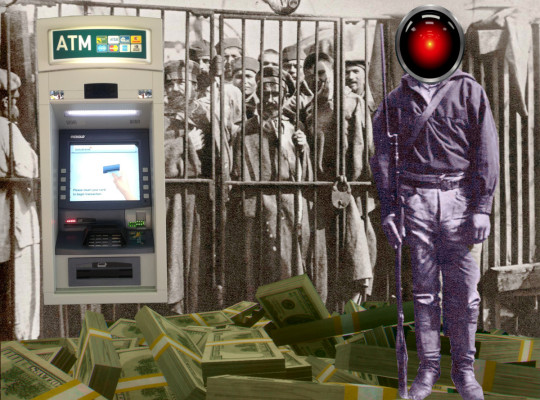#st. clair
Explore tagged Tumblr posts
Text

"Yeah, it's The Wolfman, and it's Halloween! So we goin' be rocking to the Midnight Hour with the weird tunes!"
94 notes
·
View notes
Text

N 2nd Street, St. Clair, Pennsylvania.
62 notes
·
View notes
Text


Midtown Toronto
2024
11 notes
·
View notes
Text
Why University of Missouri-St. Louis alum Brianna Coppage quit teaching
Brianna Coppage, 28, grew up in Sullivan, Missouri, United States. She has bachelor’s and master’s degrees in education. In 2018, Coppage graduated from the University of Missouri-St. Louis in St. Louis, Missouri. Upon graduating, she started teaching and she worked as an academic adviser at the Missouri University of Science and Technology in Rolla, Phelps County, Missouri. In 2021, Coppage…

View On WordPress
1 note
·
View note
Text

Aragas
#dark rise#dark heir#will kempen#james st clair#wames at it's most unhinged (nah they can get much more unhinged and i think that is beautiful <3)#my art
2K notes
·
View notes
Text

You ever see something that fits your characters a little too well
1 note
·
View note
Text

my whole life, all anyone's ever wanted was to possess me
#dark rise#dark heir#cs pacat#c.s pacat#fanart#my art#james st clair#book art#artists on tumblr#I like drawing James' hair with extra fluff and volume#I really hope to capture James in a drawing someday#I think I can see myself improving a little
1K notes
·
View notes
Text



Promo art I did for C.S. Pacat's Dark Rise.
#dark rise#will kempen#james st clair#cyprian#book art#cs pacat#anqiart#illustration#portraits#digital art#digital painting
1K notes
·
View notes
Text
Shout out to dysfunctional teenage friend groups from 80s movies, gotta be one of my favorite genders





#i need me some friends like that#the breakfast club#stand by me#the outsiders 1983#the outsiders#gordie lachance#chris chambers#teddy duchamp#allison reynolds#john bender#claire standish#andrew clark#ponyboy curtis#johnny cade#dally winston#dallas winston#sodapop curtis#two bit mathews#80s#80s movies#1980s#dead poets society#dead poets#dead poets fandom#dead poets society fandom#dps fandom#dps boys#dps#st elmo's fire#the brat pack
3K notes
·
View notes
Text


Them in book one be like:
#dark rise#dark heir#darkrise#fantasy books#books#cs pacat#will kempen#james st clair#princess mononoke
1K notes
·
View notes
Text

'There was only one bed' wames, Dark Heir 'The Bed' 'Le Lit' Henri de Toulouse-Lautrec overpaint
462 notes
·
View notes
Text
Prison-tech company bribed jails to ban in-person visits

I'm on tour with my new, nationally bestselling novel The Bezzle! Catch me in BOSTON with Randall "XKCD" Munroe (Apr 11), then PROVIDENCE (Apr 12), and beyond!

Beware of geeks bearing gifts. When prison-tech companies started offering "free" tablets to America's vast army of prisoners, it set off alarm-bells for prison reform advocates – but not for the law-enforcement agencies that manage the great American carceral enterprise.
The pitch from these prison-tech companies was that they could cut the costs of locking people up while making jails and prisons safer. Hell, they'd even make life better for prisoners. And they'd do it for free!
These prison tablets would give every prisoner their own phone and their own video-conferencing terminal. They'd supply email, of course, and all the world's books, music, movies and games. Prisoners could maintain connections with the outside world, from family to continuing education. Sounds too good to be true, huh?
Here's the catch: all of these services are blisteringly expensive. Prisoners are accustomed to being gouged on phone calls – for years, prisons have done deals with private telcos that charge a fortune for prisoners' calls and split the take with prison administrators – but even by those standards, the calls you make on a tablet are still a ripoff.
Sure, there are some prisoners for whom money is no object – wealthy people who screwed up so bad they can't get bail and are stewing in a county lockup, along with the odd rich murderer or scammer serving a long bid. But most prisoners are poor. They start poor – the cops are more likely to arrest poor people than rich people, even for the same crime, and the poorer you are, the more likely you are to get convicted or be suckered into a plea bargain with a long sentence. State legislatures are easy to whip up into a froth about minimum sentences for shoplifters who steal $7 deodorant sticks, but they are wildly indifferent to the store owner's rampant wage-theft. Wage theft is by far the most costly form of property crime in America and it is almost entirely ignored:
https://www.theguardian.com/us-news/2023/jun/15/wage-theft-us-workers-employees
So America's prisons are heaving with its poorest citizens, and they're certainly not getting any richer while they're inside. While many prisoners hold jobs – prisoners produce $2b/year in goods and $9b/year in services – the average prison wage is $0.52/hour:
https://www.dollarsandsense.org/archives/2024/0324bowman.html
(In six states, prisoners get nothing; North Carolina law bans paying prisoners more than $1/day, the 13th Amendment to the US Constitution explicitly permits slavery – forced labor without pay – for prisoners.)
Likewise, prisoners' families are poor. They start poor – being poor is a strong correlate of being an American prisoner – and then one of their breadwinners is put behind bars, taking their income with them. The family savings go to paying a lawyer.
Prison-tech is a bet that these poor people, locked up and paid $1/day or less; or their families, deprived of an earner and in debt to a lawyer; will somehow come up with cash to pay $13 for a 20-minute phone call, $3 for an MP3, or double the Kindle price for an ebook.
How do you convince a prisoner earning $0.52/hour to spend $13 on a phone-call?
Well, for Securus and Viapath (AKA Global Tellink) – a pair of private equity backed prison monopolists who have swallowed nearly all their competitors – the answer was simple: they bribed prison officials to get rid of the prison phones.
Not just the phones, either: a pair of Michigan suits brought by the Civil Rights Corps accuse sheriffs and the state Department of Corrections of ending in-person visits in exchange for kickbacks from the money that prisoners' families would pay once the only way to reach their loved ones was over the "free" tablets:
https://arstechnica.com/tech-policy/2024/03/jails-banned-family-visits-to-make-more-money-on-video-calls-lawsuits-claim/
These two cases are just the tip of the iceberg; Civil Rights Corps says there are hundreds of jails and prisons where Securus and Viapath have struck similar corrupt bargains:
https://civilrightscorps.org/case/port-huron-michigan-right2hug/
And it's not just visits and calls. Prison-tech companies have convinced jails and prisons to eliminate mail and parcels. Letters to prisoners are scanned and delivered their tablets, at a price. Prisoners – and their loved ones – have to buy virtual "postage stamps" and pay one stamp per "page" of email. Scanned letters (say, hand-drawn birthday cards from your kids) cost several stamps:
https://pluralistic.net/2024/02/14/minnesota-nice/#shitty-technology-adoption-curve
Prisons and jails have also been convinced to eliminate their libraries and continuing education programs, and to get rid of TVs and recreational equipment. That way, prisoners will pay vastly inflated prices for streaming videos and DRM-locked music.
The icing on the cake? If the prison changes providers, all that data is wiped out – a prisoner serving decades of time will lose their music library, their kids' letters, the books they love. They can get some of that back – by working for $1/day – but the personal stuff? It's just gone.
Readers of my novels know all this. A prison-tech scam just like the one described in the Civil Rights Corps suits is at the center of my latest novel The Bezzle:
https://us.macmillan.com/books/9781250865878/thebezzle
Prison-tech has haunted me for years. At first, it was just the normal horror anyone with a shred of empathy would feel for prisoners and their families, captive customers for sadistic "businesses" that have figured out how to get the poorest, most desperate people in the country to make them billions. In the novel, I call prison-tech "a machine":
a million-armed robot whose every limb was tipped with a needle that sank itself into a different place on prisoners and their families and drew out a few more cc’s of blood.
But over time, that furious empathy gave way to dread. Prisoners are at the bottom of the shitty technology adoption curve. They endure the technological torments that haven't yet been sanded down on their bodies, normalized enough to impose them on people with a little more privilege and agency. I'm a long way up the curve from prisoners, but while the shitty technology curve may grind slow, it grinds fine:
https://pluralistic.net/2021/02/24/gwb-rumsfeld-monsters/#bossware
The future isn't here, it's just not evenly distributed. Prisoners are the ultimate early adopters of the technology that the richest, most powerful, most sadistic people in the country's corporate board-rooms would like to force us all to use.

If you'd like an essay-formatted version of this post to read or share, here's a link to it on pluralistic.net, my surveillance-free, ad-free, tracker-free blog:
https://pluralistic.net/2024/04/02/captive-customers/#guillotine-watch

Image: Cryteria (modified) https://commons.wikimedia.org/wiki/File:HAL9000.svg
CC BY 3.0 https://creativecommons.org/licenses/by/3.0/deed.en
--
Flying Logos https://commons.wikimedia.org/wiki/File:Over_$1,000,000_dollars_in_USD_$100_bill_stacks.png
CC BY-SA 4.0 https://creativecommons.org/licenses/by-sa/4.0/deed.en
--
KGBO https://commons.wikimedia.org/wiki/File:Suncorp_Bank_ATM.jpg
CC BY-SA 3.0 https://creativecommons.org/licenses/by-sa/3.0/deed.en
#pluralistic#prison#prison-tech#marty hench#the bezzle#securus#captive audiences#St Clair County#human rights#prisoners rights#viapath#gtl#global tellink#Genesee County#michigan#guillotine watch#carceral state#corruption
1K notes
·
View notes
Text


#I asked for memes to draw… well#now we're here#I can’t look at this without giggling because I’m a really adult#Kathryn never had a chance#sorry girl#dark rise#dark heir#james st clair#will kempen#james x will#Katherine Kent#cs pacat#my art
818 notes
·
View notes
Text

Midtown Toronto
2024
7 notes
·
View notes
Text

Jean-Baptiste Pointe DuSable was born in Saint-Domingue, Haiti (French colony) during the Haitian Revolution. At some point he settled in the part of North America that is now known as the city of Chicago and was described in historical documents as "a handsome negro" He married a Native American woman, Kitiwaha, and they had two children. In 1779, during the American Revolutionary War, he was arrested by the British on suspicion of being an American Patriot sympathizer. In the early 1780s he worked for the British lieutenant-governor of Michilimackinac on an estate at what is now the city of St. Clair, Michigan north of Detroit. In the late 1700's, Jean-Baptiste was the first person to establish an extensive and prosperous trading settlement in what would become the city of Chicago. Historic documents confirm that his property was right at the mouth of the Chicago River. Many people, however, believe that John Kinzie (a white trader) and his family were the first to settle in the area that is now known as Chicago, and it is true that the Kinzie family were Chicago's first "permanent" European settlers. But the truth is that the Kinzie family purchased their property from a French trader who had purchased it from Jean-Baptiste. He died in August 1818, and because he was a Black man, many people tried to white wash the story of Chicago's founding. But in 1912, after the Great Migration, a plaque commemorating Jean-Baptiste appeared in downtown Chicago on the site of his former home. Later in 1913, a white historian named Dr. Milo Milton Quaife also recognized Jean-Baptiste as the founder of Chicago. And as the years went by, more and more Black notables such as Carter G. Woodson and Langston Hughes began to include Jean-Baptiste in their writings as "the brownskin pioneer who founded the Windy City." In 2009, a bronze bust of Jean-Baptiste was designed and placed in Pioneer Square in Chicago along the Magnificent Mile. There is also a popular museum in Chicago named after him called the DuSable Museum of African American History.
x
#Jean-Baptiste Pointe DuSable#Haitian Revolution#Chicago history#founder of Chicago#black history#Native American wife#Kitiwaha#American Revolutionary War#British arrest#Michilimackinac#St. Clair Michigan#trading settlement#Chicago River#John Kinzie#European settlers#Great Migration#Carter G. Woodson#Langston Hughes#Windy City#bronze bust#Pioneer Square#Magnificent Mile#DuSable Museum#African American history
597 notes
·
View notes
Text


(DK/DH bookmark design with wames and sarcanha <3)
1K notes
·
View notes